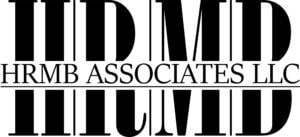There is a widespread misunderstanding about retirement. People usually think that retirement means their returns become uncomplicated and easier to withdraw. But that’s not true. This concept may be accurate for some people. But several people find the integration of withdrawal from retirement accounts, pensions, and social security funds easy, and it all adds up to increase their income during retirement. However, it is not as easy as it seems. The tax bills reduce, and tax planning gets complicated.One of the most challenging features is making comprehensive retirement tax planning that can maintain a balance between the chosen livelihood standard and practical retirement return expectancy. Preparation for retirement is a multi-step procedure that develops over time.
If you’re retired or going to retire anytime soon, then you should read through these five retirement tax strategies:
Take Inventory
You should keep an inventory of your income resources. Along with it, you should evaluate the amount of money you will require during the time of retirement for your living expenses. This may incorporate:
- Taxable resources, for example, shared assets and money market funds.
- Charge conceded resources like IRAs, 401(k) plan records, and annuities.
- Non-taxable resources, for example, Roth IRAs, Roth 401(k) plans, or duty excluded metropolitan bonds. (Government-backed retirement advantages might be non-taxable or, to some extent, available contingent upon your different kinds of revenue.)
You should create a plan for drawing retirement income tax efficiently, keeping state income tax (if relevant) in your mind. For instance, you might reduce your present-day taxes by tapping non-taxable assets first, accompanied by assets that produce capital gains, and stopping all the withdrawals from tax-deferred accounts for as long as you can manage.
If you reach the age of 72 and have a considerable size of the required minimum distribution (RMDs) from the tax-deferred accounts, you can easily withdraw some amount as per your requirement. But why should you withdraw that amount? It is necessary since RMDs would push you into a more excellent tax bracket in the long run. But in other cases, it may be different.
For example, you can withdraw a certain amount each year from your IRAs or 401 (k) account without pushing yourself into the higher tax bracket from a lower tax bracket. Using this way can help you maintain current taxes on the funds rationally while also lowering the account size. This practice reduces the size of the required minimum distributions down the way. You can also gather extra funds from all the non-taxable or capital gain assets if needed.
Related:- Top 6 Ways To Easily Deal With Difficult Tax And Accounting Clients
Remember The Timings of Social Security Benefits.
You can start receiving Social Security advantages at the premature age of 62 or later than 70. The later you begin, the bigger the benefit total. So, if you don’t need the money immediately, deferring it may be a wise decision for future purposes. In addition, benefits are reduced if you begin receiving them before reaching the full retirement age and keep on working.
You should keep one thing in mind: if your income from outside sources crosses definite boundaries, your social security benefits will start to become partially taxable. For instance, if married couples are filing taxes jointly and their combined income is above $44,000, they have to pay taxes up to 85% on their Social Security benefits. (Merged income includes non-taxable interests with the adjusted gross income and half of the Social Security benefits.)
Make Qualified Charitable Distributions
Once you reach the age of 72 (or up from 70 and a half for individuals born before 1949, July 1), you need to start RMDs from a tax-deferred retirement account. You can, however, delay taking your first payout until April 1 of the year after you age 72. RMDs are generally taxed like regular income, and you are required to take them whether or not you require the money. A hefty RMD, as we mentioned in the first suggestion, can drive you into a higher tax band.
One approach for you to lower the amount of the RMDs is to create a qualified charitable distribution (QCD). If your age is 70 and a half years or if you are older (this age did not increase when the RMD age increased), a qualified charitable distribution permits individuals to dispense up to $100,000 tax-free straight from an IRA to a qualifying charity and use that money toward your RMDs.
The assets are not consolidated in your income, so you stay away from taxes on the whole sum whether or not you itemize. Furthermore, the pay put together cut-off points concerning beneficent allowances do not make a difference. Any sum prohibited from your pay under the QCD is likewise avoided from being treated as a charitable subtraction.
Pay Evaluated Taxes
During your retirement, all the income resources may or may not stop the income taxes during your retirement taxes. To avoid any kind of shock and punishment, you should estimate whether your reserves will cover all the responsibility for a year or not. Try to make quarterly approximate tax payments to cover up any anticipated inadequacy.
Keep A Record of Your Medical Expenses
You should keep an account of all of your medical expenses. Medical costs are now only taxable if you itemize your deductions and only to the extent that they exceed 7.5 percent of your modified gross earnings. You should keep a meticulous track of your medical bills if you have a lot of them. If you are much of them (or close to), try bundling your elective expenses to maximize your yearly deductions.
Since the pressure of planning retirement is descending down on people, few workers can rely upon their employer-provided defined pension benefits, mainly in the corporate sector. The transition to the defined-contribution plans, like 401(k)s, also entails controlling your funds is your responsibility, instead of your boss’s.
If you are reaching your retirement age, you should take advice from a specialist who can help you with your tax-related problems; however, if you are looking for someone who can provide you with the best service, head over to the HRMB Associates website.
Aside from tax-related services, we offer many services that include data entry, HR consulting, bookkeeping, and many more. You would love to know that our specialists have resolved several accounting issues and businesses’ financials.


